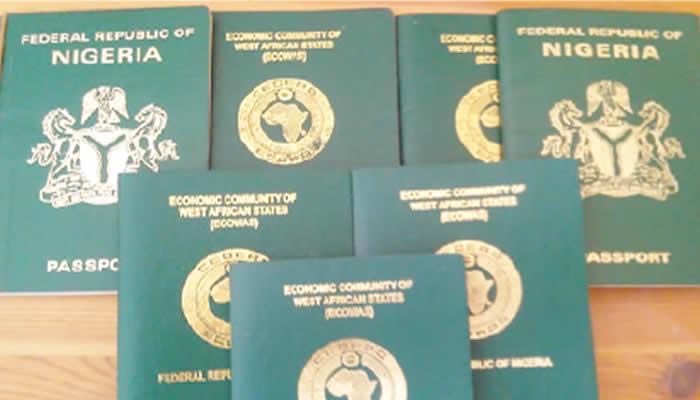
The Federal Government has justified its decision to raise the cost of Nigerian passports to ₦100,000 and ₦200,000, saying the hike is part of sweeping reforms to eliminate corruption, speed up processing, and safeguard the integrity of the country’s travel documents.
According to the Nigeria Immigration Service (NIS), from September 1, 2025, new applications filed in Nigeria will attract ₦100,000 for the 32-page, five-year booklet and ₦200,000 for the 64-page, 10-year passport. Nigerians in the diaspora will continue paying $150 and $230, respectively.
This represents the second price adjustment in just over a year. In August 2024, the cost of the 32-page booklet was raised from ₦35,000 to ₦50,000, while the 64-page jumped from ₦70,000 to ₦100,000.
“One Week, One Passport” – Tunji-Ojo
Minister of Interior, Dr. Olubunmi Tunji-Ojo, defended the new policy during the ministry’s mid-tenure performance retreat in Abuja, insisting it would end the era of endless delays and extortion.
“Our target is very clear: within one week of enrolment, every Nigerian should have their passport in hand,” he said. He recalled that Nigerians—including his own daughter—had once been forced to pay exorbitant bribes or wait months to get passports. “That era is over,” he declared.
Ending PCO Extortion
As part of the reforms, Tunji-Ojo announced that Passport Control Officers (PCOs) will no longer have approval powers, a measure designed to curb corruption in passport offices.
“Some PCOs had so much power that they would hold back passports until they were settled. That abuse ends now. Approval is now centralised,” the minister explained.
He also unveiled a new centralised personalisation centre—described as the largest in Africa—which he said can print five times the current national demand, with vetting completed within 24 hours of enrolment.
Safeguarding National Identity
Tunji-Ojo stressed that the reforms were not just about efficiency but also about protecting the credibility of Nigeria’s travel documents.
“My responsibility is not just to make passports available but to ensure that anybody carrying it is truly Nigerian. Our passport must remain a true symbol of national identity,” he said.
He cited past abuses, including the case of a Ugandan woman once caught at Lagos airport with a fraudulently procured Nigerian passport. “That cannot continue,” he added.
The government maintains that the fee adjustment, though steep, will guarantee faster service delivery, eliminate corruption, and restore global confidence in Nigeria’s passport.
